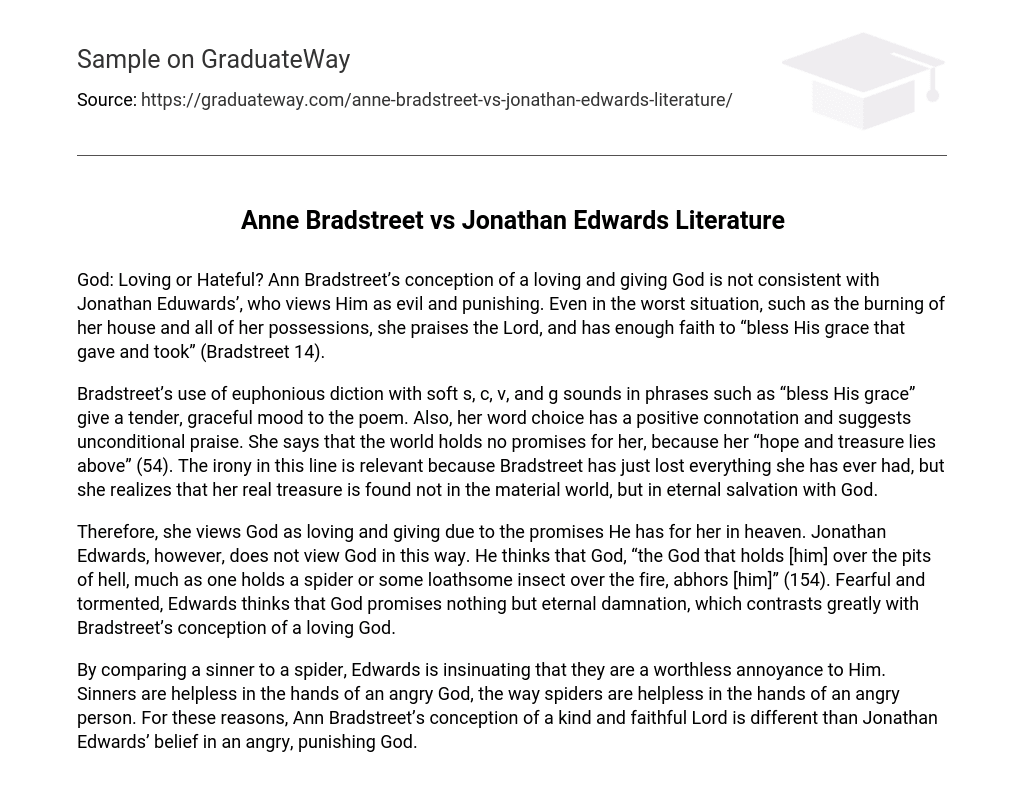Ann Bradstreet’s portrayal of God differs from Jonathan Edwards’. While Bradstreet sees God as loving and generous, Edwards views Him as malevolent and punitive. Bradstreet’s faith remains steadfast even in the face of devastating circumstances like the destruction of her house and belongings. She expresses gratitude for God’s grace, acknowledging both His giving and taking (Bradstreet 14).
Bradstreet employs euphonic language featuring soft s, c, v, and g sounds, such as “bless His grace,” to provide a gentle and elegant atmosphere to the poem. Furthermore, her selection of words carries a optimistic connotation and implies wholehearted admiration. She asserts that the Earth holds no assurances for her since her “hope and treasure lies above” (54). The irony in this statement is significant as Bradstreet has just experienced a profound loss, yet she recognizes that her true wealth is not found in the physical realm but in everlasting salvation with God.
Therefore, while she sees God as loving and generous because of the promises He has for her in heaven, Jonathan Edwards holds a different perspective. According to him, God, “the God that holds [him] over the pits of hell, much as one holds a spider or some loathsome insect over the fire, abhors [him]” (154). Filled with fear and torment, Edwards believes that God promises nothing but eternal damnation, which strongly contrasts Bradstreet’s belief in a loving God.
According to Edwards, sinners can be likened to spiders, portraying them as insignificant irritations to God. In the same manner that an angry individual can easily overpower a helpless spider, sinners are defenseless in the face of an angry God. Consequently, Bradstreet’s understanding of a benevolent and loyal deity contrasts with Edwards’ perception of a vengeful and judgmental God.





